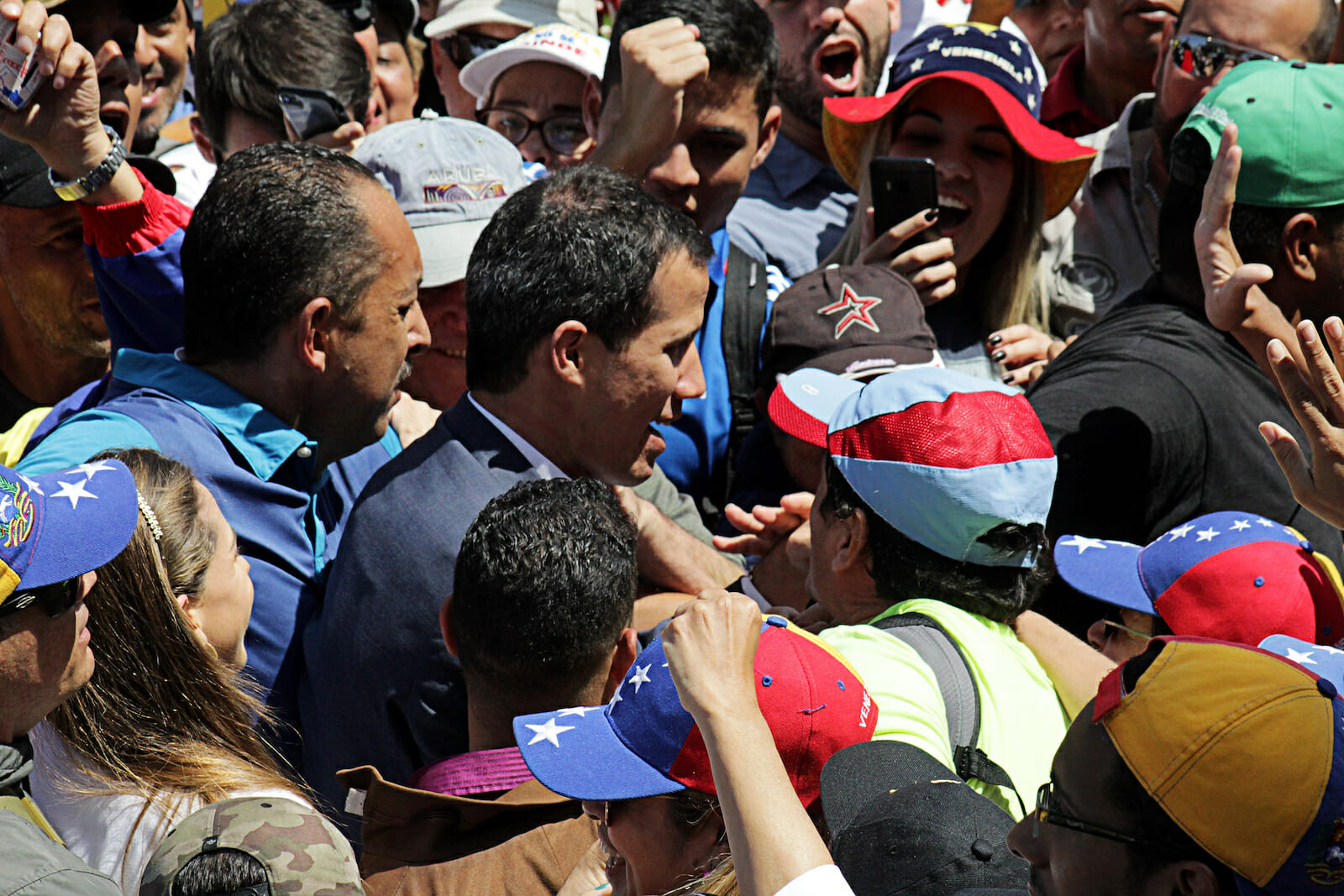
Is the Situation in Venezuela Different than other U.S. Interventions in Latin America?
It seems more and more likely that something violent will happen in Venezuela. Currently, the Maduro regime is struggling to hold onto power after the opposition leader, Juan Guaidó, declared himself the legitimate president of the troubled nation. This struggle between leaders has led to increasing tensions in an already tense situation as a result of a devastating economic crisis that has left many without food, medicine, or proper shelter.
In Washington, the Trump administration is posturing itself more aggressively to the Maduro regime. After months of threats of military action, the Trump administration followed through with a political attack backing Guaidó’s claim to power which has put more pressure on Maduro. One of the few bastions of power that Maduro still has left under his control is the military, should he lose that, he has little to no backing to keep him in power.
However, the military is still loyal to Maduro and the chances of him stepping down voluntarily are slim. That brings us to the alternative: Will the Trump administration intervene militarily in Venezuela? Trump’s top national security advisor, John Bolton, has been clamoring to intervene in Venezuela since the beginning of his tenure. Trump has stated that all options are always on the table. Maduro is poised to hold onto power until the end, so what happens now? It’s a question the whole world is waiting to see answered.
In terms of military capabilities, there is no doubt that the United States is more powerful with its continuously expanding combat capabilities. However, as far as the legitimacy of such an intervention, that is another question. The US has a long and controversial history of intervening in Latin American affairs, but many are saying that the situation in Venezuela is different than previous American interventions in Latin America.
For one, people have cited how Maduro refuses to acknowledge reality as a justification for US intervention. There are no doubt many problems in countries around the world that do not justify military intervention or a coup, but when Maduro refuses to even admit there is a humanitarian crisis brewing in his country and refuses to accept aid from other countries to alleviate the situation, it crosses a red line for many.
To date, Venezuela is witnessing an exodus of millions of its people that are fleeing to various countries throughout the region. This puts an even greater strain on the Venezuelan economy in the long run as those fleeing are now leaving a vacuum within Venezuela. Although unemployment is extremely high, considering that those fleeing are generally young people, there will be a long-lasting deficit in the country’s workforce for decades. If something is not done soon in the country, the damages that Maduro’s rule has caused may last for years beyond the lifespan of the current regime even if it survives this current crisis.
Considering that the Juan Guaidó coup has not been as successful as the majority of countries around the world were hoping, military intervention may be the only remaining option. The majority of Venezuelans at this point do support some measure to remove Maduro from power but are against military intervention in the country. This leaves the country at an impasse, as it seems clear that Maduro has no intentions of leaving power anytime soon.
To put it simply, Venezuela is stuck between a rock and a hard place. The country is falling apart, yet the United States has a terrible track record in Latin America when it comes to intervening in South America. One thing is for sure though, tensions in and around Venezuela are rising and something is sure to break soon.

